Diabetes Collaboration Initiative of the Year – Children, Young People and Emerging Adults
In this category, the judges were looking for initiatives aimed at children, young people and emerging adults (up to 25 years old) with diabetes and their families. The initiatives could involve any element of the care pathway, whether clinical, educational, psychological or social wellbeing, and were welcomed from specialist, primary or community settings.
Winner – Type 1: Origins, Diabetes the Comic Book
University Hospital Southampton NHS Foundation Trust, Queen Alexandra Hospital Portsmouth and Revolve Comics
Inspired by feedback from children and young people about limited access to resources after their type 1 diabetes diagnosis, the team took inspiration from superheroes. Discovering their powers, they realise that life will never be the same again and that adaption to change is necessary. Type 1: Origins is the first diabetes-inspired comic book and, since October 2016, has been downloaded for free nearly 6000 times. All the key UK diabetes charities have supported this initiative and the collaboration work continues, with Digibete UK animating the comic and funding secured to develop a sequel.
Highly commended – An awareness of type 1 diabetes in schools and other settings
East of England Children and Young People’s Diabetes Network, Children and Young People’s North West Diabetes Network, Children and Young People’s Thames Valley Diabetes Network, JDRF and Virtual College
This online course is available for free and has been endorsed by the National Children and Young People’s Diabetes Network. The course is aimed at all professionals who work in schools and other settings where they may come into contact with children and young people who have type 1 diabetes.
Diabetes Team Initiative of the Year – Children, Young People and Emerging Adults
This award recognises the value of outstanding multidisciplinary team achievements and contributions that help better prevent, diagnose or treat diabetes and support self-care management to improve service users’ experience and outcomes.
Winner – Engaging to improve: Outcomes of the young adult clinic restructure
Royal Liverpool & Broadgreen University Hospitals NHS Trust
Achieving good glycaemic outcomes for young adults with diabetes remained a challenge at the Royal Liverpool University Hospital. Towards the end of 2015, patient engagement was poor, with high non-attendance rates in clinics. Through a process of team briefings and service user feedback, a number of changes were made, including a clinic restructure. Outcomes at the end of 2016 showed a significantly lower non-attendance rate, quadrupled rates of patients achieving HbA1c <53 mmol/mol (7.0%), very high user satisfaction and financial gains.
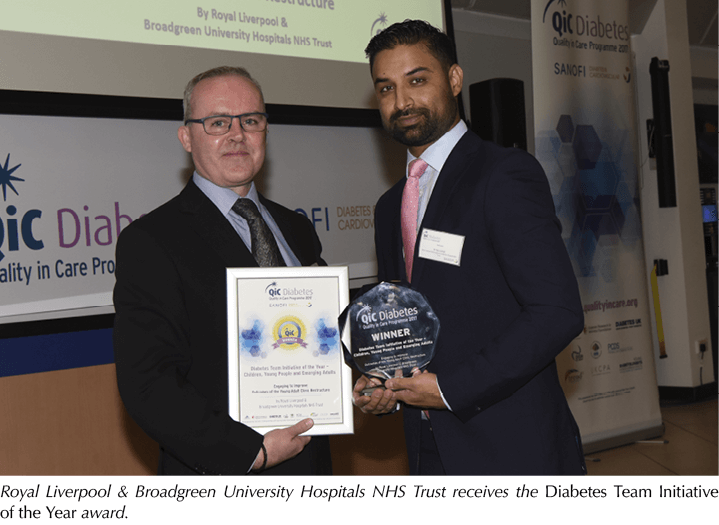
Commended – Data-driven quality improvement utilising multiple initiatives in paediatric diabetes
Children’s Hospital for Wales
This project was concerned with using multiple quality improvement initiatives simultaneously to drive improvements in HbA1c. The project achieved its aim with an 8-mmol/mol (0.7%) improvement in the clinic’s median HbA1c over one year. It was also well received, with positive patient/parental feedback on the impact of the new initiatives and changes. This project is sustainable within its own centre and can undergo continuous evaluation and enhancement. It is also transferable to other centres or in partnership across networks.
Commended – FRED workshops: Food, Relationships, Exercise with Diabetes
The Hillingdon Hospital
The FRED workshop is a multidisciplinary initiative designed to empower self-management among young people with type 1 diabetes and their parents. It deals with all aspects of living with diabetes every day, ranging from psychological issues to exercise and self-adjustment of dosage. It is delivered using a unique format, which consists of variations of group participation, mixing young people both with their parents and independently of them, as well as sessions for parents independently of their children.
Commended – Solution-focused brief therapy (SFBT) approach improves glycaemic control, patient satisfaction and patient engagement in children and young people with T1DM
Southport and Ormskirk Hospitals NHS Trust
Patient Care Pathway – Children, Young People and Emerging Adults
An efficient patient care pathway is critical to empower people and/or their families and carers to self-manage their diabetes and avoid unnecessary complications. Based on their needs and goals, the focus of the patient care pathway is to improve the quality and delivery of effective integrated services that are based in the community and/or hospital.
Winner – Tackling the Toughest of Times
Sheffield Teaching Hospital NHS Foundation Trust
In 2013, the Sheffield team published a paper showing that outcomes had not improved in its clinic for young people aged 16–20 years over the previous decade. So it made a number of changes, such as creating an age-specific structured education course and raising the profile of psychology. In doing so, it improved engagement with the clinic and its services and improved glycaemic control, and it now has results that are better than the national average for this age group.
Judges’ Special Award
This award is judged from all entries received (irrespective of category) for a project that the judges feel deserves national recognition and a platform to be shared with the wider diabetes community.
Winner – Diabetes wellness events empowering people in effective self-management
Diabetes Research and Wellness Foundation
The DRWF Wellness Day South brings together a wealth of information under one roof for people living with diabetes, their family members, carers, friends and those with an interest in diabetes. The event is run in close collaboration with local healthcare services, complementing and reinforcing key health messages to support optimised glycaemic control and psychosocial wellbeing. The programme has grown from workshop delivery to include a “hub” area and satellite sessions throughout the day.
Empowering People with Diabetes – Children, Young People and Emerging Adults
This award recognises those teams and individuals working to educate and empower young people and/or their families and carers to self-manage their diabetes and stay as healthy as possible.
Winner – Empowering children and young people with diabetes through structured education
Children and Young People’s Wales Diabetes Network
SEREN is a national diabetes education programme for children and young people developed by healthcare professionals and parent representatives from Wales. The first modules are delivered over the 6–8 weeks following diagnosis and aim to improve the children’s knowledge and understanding of diabetes, empowering them to manage their condition from day one. The programme includes a full curriculum with lesson plans for staff, a workbook for the young person, educator records to track progress and an array of supporting teaching resources.
Commended – Cook and Eat Exeter: Carbohydrate counting in real life
Royal Devon & Exeter NHS Foundation Trust
The Exeter Children and Young People’s Diabetes service developed two structured education programmes, Cook and Eat Family Fun (pre-school and primary school age) and Cook and Eat Fun! (secondary school age), to actively learn carbohydrate counting skills in a real-life setting. The learning outcomes are age-appropriate and achievable for young people. Participants are invited to annual sessions to build up their knowledge and understanding. Sessions are funded by schools, supermarket donations and grants from charitable trusts.
Finalist – Empowering teenagers with high school education
NHS Highland (Argyll and Bute)
This project aimed to provide diabetes education to teenagers in a way that promotes empowerment and self-management, and encourages the development of peer-support networks. Education sessions were provided every fortnight during term-time in a group format, with an emphasis on practical learning, discussion and group problem-solving. Empowerment, measured via a questionnaire at the beginning and end of each term, and HbA1c were found to have improved in five out of seven students.
Finalist – Psychological support intervention using art therapy for patients with type 1 diabetes
St Luke’s General Hospital
This pilot programme offers brief and long-term art psychotherapy to support individuals with a diagnosis of type 1 diabetes. Subjects received individual and group therapy sessions, depending on their therapeutic needs, and explored themes of self-esteem and identity, as well as coping mechanisms. The preliminary results show a significant reduction in HbA1c compared with a control group.
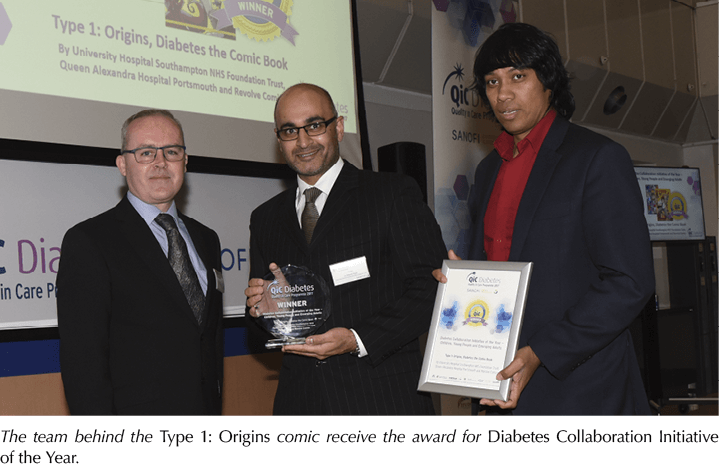
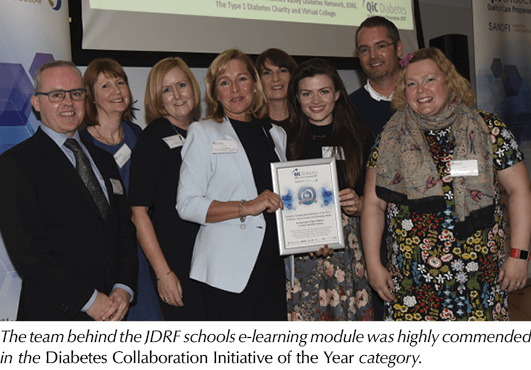
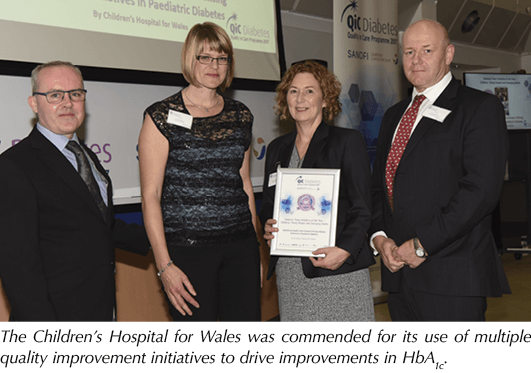
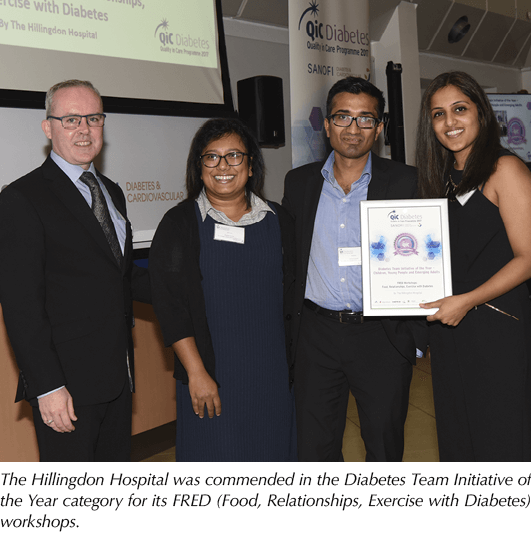
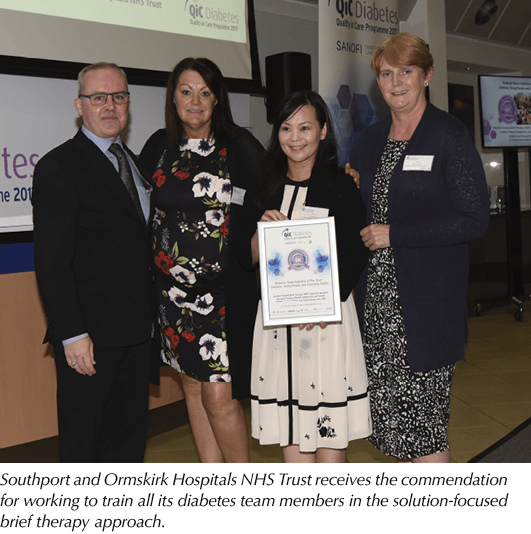
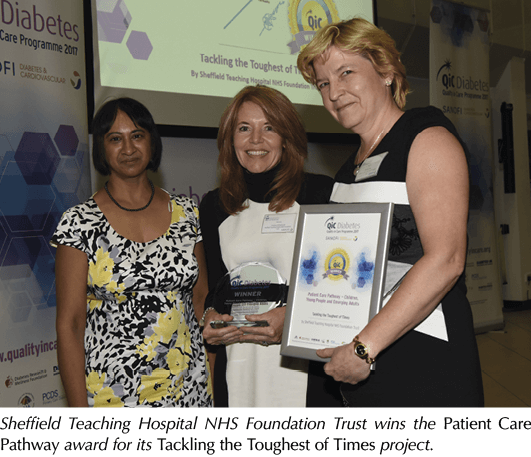
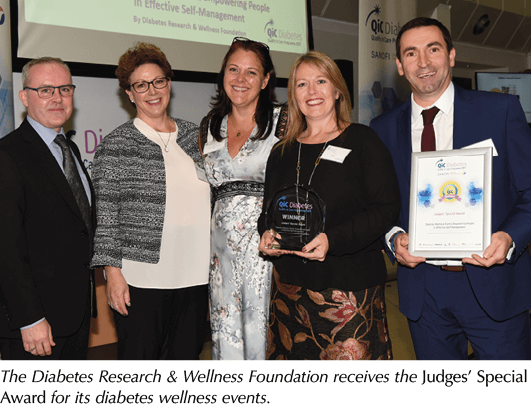
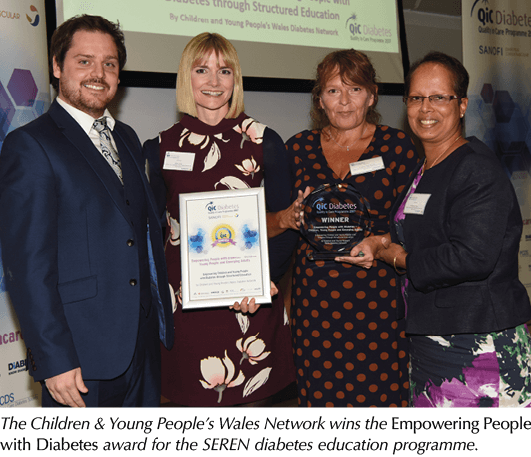
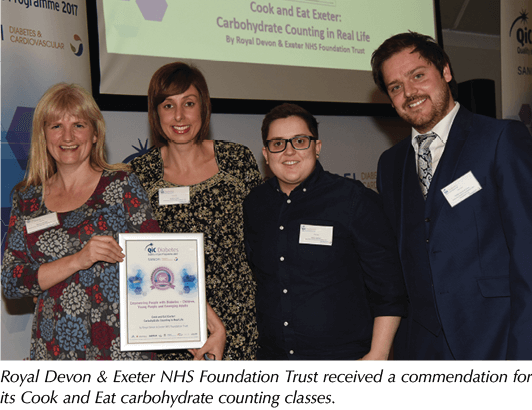

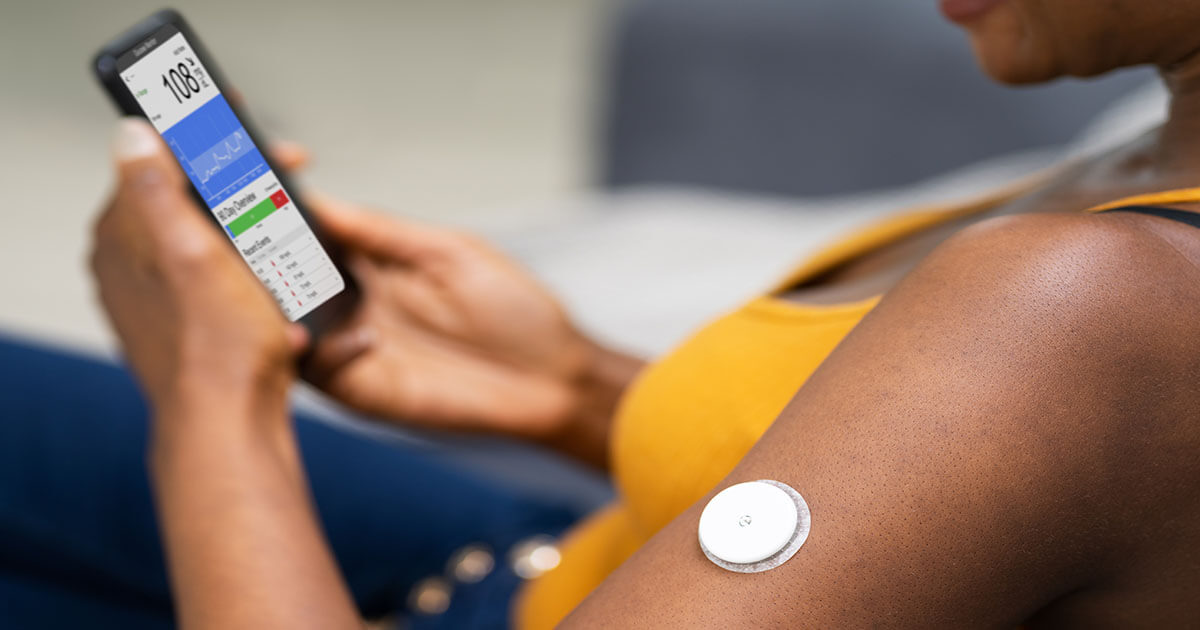



NHSEI National Clinical Lead for Diabetes in Children and Young People, Fulya Mehta, outlines the areas of focus for improving paediatric diabetes care.
16 Nov 2022